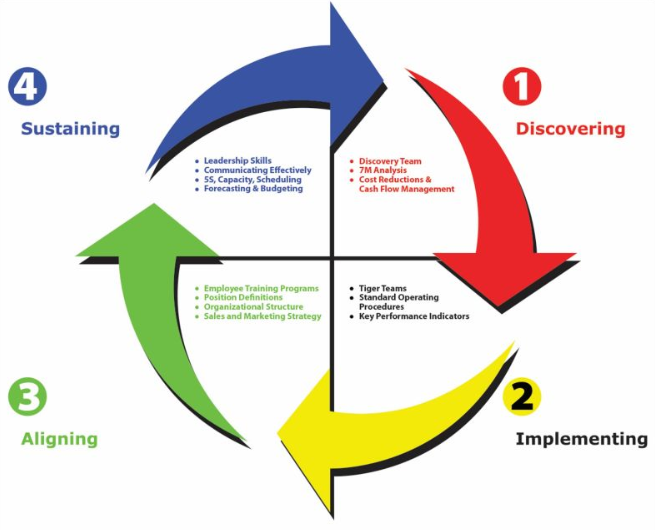In today’s fast-paced business landscape, the spotlight is shining brightly on one critical element: quality employees. They are not just assets; they are the heartbeat of any successful organization. Picture this: a team filled with motivated, skilled individuals who drive innovation and productivity. It sounds ideal, doesn’t it? Yet, many businesses struggle to find and retain these high-caliber talents. The impact of quality employees goes beyond mere performance metrics—it influences company culture, brand reputation, and ultimately, the bottom line.
As we explorer deeper into the world of quality employees, you’ll discover how essential they are for fostering a thriving workplace environment. Let’s explore effective strategies for finding them and understanding their immense contribution to business success.
How to Find Quality Employees?
Finding quality employees requires a strategic approach. Start by defining what “quality” means for your organization. Consider skills, experience, and cultural fit.
Leverage multiple channels for recruitment. Job boards are useful, but don’t underestimate the power of social media and networking events. Tap into professional groups where potential candidates gather.
Craft clear job descriptions that highlight not just qualifications but also company values. This attracts individuals who resonate with your mission.
Implement an effective screening process to filter candidates early on. Use behavioral interview techniques to assess how they handle real-life scenarios relevant to your business challenges.
Consider employee referrals as a valuable resource. Your current workforce can help identify individuals who would thrive in your environment, ensuring alignment from the start.
How Quality Employees Contribute to Business Success
Quality employees are the backbone of any thriving business. Their skills and expertise drive innovation and efficiency, leading to higher productivity levels.
When teams consist of dedicated individuals, collaboration flourishes. These employees often share ideas freely, fostering a creative environment that can lead to groundbreaking solutions.
Moreover, quality employees tend to have a strong sense of accountability. They take pride in their work and strive for excellence consistently.
This commitment translates into superior customer service. Happy customers are more likely to return and recommend your business to others, enhancing brand loyalty.
Additionally, skilled workers help reduce operational costs. With their ability to solve problems quickly and effectively, they minimize errors—saving both time and money for the organization.
Investing in quality talent not only boosts performance but also promotes an overall positive workplace atmosphere where everyone benefits.
Strengthening Organizational Culture
A strong organizational culture is the backbone of a thriving business. It shapes how employees interact, collaborate, and feel about their work environment. When quality employees align with company values, they naturally foster an atmosphere of trust and respect.
Encouraging open communication can significantly enhance this culture. Employees who feel valued are more likely to share ideas and participate actively in team efforts.
Additionally, recognizing achievements—big or small—can reinforce positive behavior and motivate others to excel. Celebrating milestones not only boosts morale but also creates a sense of belonging among staff members.
Furthermore, investing time in professional development shows commitment to employee growth. Quality employees thrive when they see opportunities for advancement within the organization.
Fostering an engaging environment leads to higher job satisfaction levels among your workforce, which directly influences productivity rates and overall success.
Building a Strong Brand Reputation
A strong brand reputation is crucial for any business aiming to thrive. Quality employees play a vital role in shaping that reputation. When staff members are skilled and dedicated, they become ambassadors of the brand.
Their interactions with customers leave lasting impressions. Positive experiences foster loyalty, encouraging repeat business and referrals. Each satisfied customer becomes a testament to the quality of service provided.
Moreover, quality employees contribute innovative ideas and solutions that enhance products or services. This creativity not only improves offerings but also positions the company as a leader in its industry.
Engaging with communities through outreach programs further solidifies this positive image. Employees involved in community engagement show that the brand cares about more than just profits.
In an age where online reviews can make or break businesses, having committed employees ensures consistently high standards across all touchpoints. A stellar reputation attracts new clients and top-tier talent alike, creating a cycle of success.
Strategies for Attracting and Retaining Quality Employees
Attracting and retaining quality employees requires a strategic approach. Start by crafting compelling job descriptions that highlight your company’s values and culture. This not only draws the right candidates but also sets clear expectations.
Offer competitive salaries and benefits packages that reflect industry standards. Employees appreciate feeling valued, which goes beyond just monetary compensation. Consider including unique perks like flexible working hours or wellness programs.
Implement robust onboarding processes to ensure new hires feel welcomed from day one. A positive first impression can significantly impact their long-term commitment.
Encourage professional growth through training opportunities and career development plans. Quality employees want to know they have a future with your organization.
Foster open communication across all levels of the business. Regular feedback sessions create an environment where employees feel heard and appreciated, strengthening their loyalty to the company.
Benefits an Organization Should Offer Employees
Offering benefits to employees is crucial for fostering loyalty and satisfaction. Competitive salaries are just the beginning. Organizations should consider health insurance that covers physical and mental well-being.
Flexible work arrangements resonate with today’s workforce. Remote options or flexible hours can significantly improve employee morale and productivity.
Professional development opportunities also play a vital role. Workshops, training sessions, or tuition reimbursement show commitment to growth. Employees appreciate when an organization invests in their future.
Paid time off is another essential benefit. It helps reduce burnout while promoting a healthy work-life balance.
Additionally, wellness programs can enhance overall job satisfaction. These initiatives not only support physical health but also encourage team bonding through group activities and challenges.
Recognition programs make employees feel valued for their contributions. Celebrating achievements fosters a positive environment where quality employees thrive.
The Role of Company Culture in Employee Satisfaction
Company culture serves as the backbone of employee satisfaction. A positive environment fosters collaboration and creativity, leading to higher morale among staff members.
When employees feel valued and included, their engagement levels soar. They are more likely to invest emotionally in their work, which translates into better performance.
Moreover, a strong culture aligns with individual values. When employees resonate with the company’s mission and vision, they find purpose in their roles.
Open communication is another crucial aspect. It builds trust between management and staff, making everyone feel heard and respected.
Recognition should be part of the culture. Celebrating achievements boosts motivation and reinforces loyalty within teams. Happy employees contribute significantly to business success through increased productivity and reduced turnover rates.
The Cost of High Turnover and Low-Quality Employees
High turnover rates can drain a company’s resources. When quality employees leave, businesses face recruitment costs and training expenses for new hires. It’s not just about filling a position; it’s about the time lost during the transition.
Low-quality employees contribute to inefficiency. They may struggle with tasks, leading to delays and decreased productivity for teams relying on them. The ripple effect extends beyond immediate projects.
Additionally, high turnover disrupts team dynamics. Frequent changes in personnel can erode trust among remaining staff, creating an unstable work environment that affects morale.
Customer relations also suffer when the workforce lacks consistency and competence. Unsatisfied clients might seek alternatives if they notice declines in service or product quality due to inadequate performance from poorly matched employees.
Investing in quality talent pays off significantly more than settling for quick fixes through low-cost hiring practices.
Conclusion
Quality employees serve as the backbone of any successful business. Their skills and dedication directly influence productivity, innovation, and customer satisfaction. By focusing on finding and retaining these valuable team members, organizations can create a thriving work environment that fosters growth.
Investing in quality employees not only enhances organizational culture but also strengthens brand reputation. A strong workplace attracts top talent while creating loyal customers who appreciate the service provided by skilled personnel.
Companies must prioritize strategies to attract quality candidates and offer benefits that promote employee retention. Emphasizing a positive company culture plays a critical role in ensuring employee satisfaction, which further reduces turnover rates.
The costs associated with high turnover and low-quality hires can be detrimental to an organization’s success. Recognizing this impact is essential for businesses aiming to thrive in competitive markets.
Prioritizing quality employees leads to lasting benefits that extend beyond immediate profits—they shape the future of your business.
















